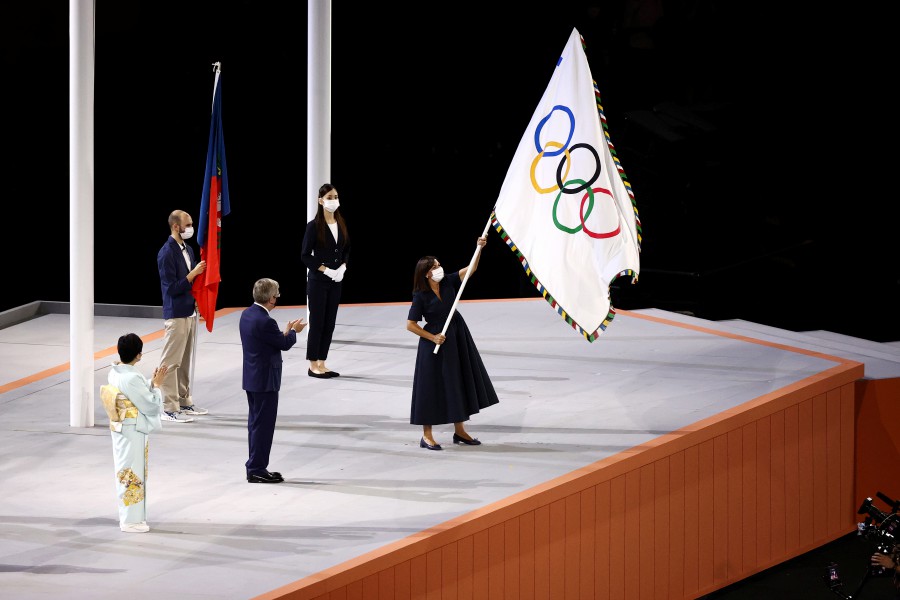When one talks about fencing, fencers from European countries and the United States spring to mind. After all, this nobleman's game touted as a sport for Royalty, was believed to have originated in Spain.
But countries like South Korea, Japan, Hong Kong, Vietnam, Uzbekistan and China have churned out world-class fencers too --- just to name a few, there's Kim Jung-hwan (South Korea), Yuki Ota (Japan), Edgar Cheung Ka Long (Hong Kong) and Zhong Man (China).
In Malaysia, we have the late Ronnie Ignatius Theseira, who represented the country in the 1964 Tokyo Olympics. He was hailed as the father of Malaysian fencing.
We also have Joshua Koh, who won a gold at the 2011 Jakarta Sea Games, 2019 Philippines edition (silver) and 2017 KL edition (bronze).
Koh reportedly turned to crowdfunding for a shot at participating in the 2020 Tokyo Olympics. He decided to crowd fund after fencing was dropped from the National Sports Council's (NSC) Podium Programme following a poor outing at the 2017 Sea Games.
Yu Peng Kean is another prominent Malaysian fencer. Yu, who took part in the 2012 Summer Olympics held in London, United Kingdom, was the first fencer from Malaysia to make it to the Olympics after a 48 year drought since the days of Theseira.
Unfortunately, he had to retire from the sport in 2017 after a knee injury.
Despite the challenges he faced in life, his unbending spirit led him to start the Valor Fencing Academy with fellow fencer Husnul Ariq Bakri.
Together, they set up the academy in Desa Sri Hartamas in Kuala Lumpur that specialises in sabre fencing. The academy currently has 80 students.
"The training fee for fencing is not expensive, but for a fencer to improve, he needs exposure.
Taking part in competitions, especially in other countries, is very important as the student gets to observe his opponent's technique during the sparring.
"The flight, accommodation and meals of the student has to be borne by the parents, who also have to cover the expenses of the coaches accompanying the team.
"I do approach business owners for sponsorship but it is not easy to get sponsorship for fencing as it is a sport that is still developing unlike badminton. Malaysia, is a traditionally badminton nation. For sports like fencing, it is not the most popular.
So far, our academy has obtained sponsorship for sport massage and physiotherapy from kind partners," Yu said.
The Japanese team reportedly also faced a shortage of fund but their government and Japanese Olympic Committee increased support for training resources in conjunction with the Tokyo Olympics, and the move turned out to be a fruitful one for the Japanese fencing team which secured their first ever fencing gold medal.
This shows at times, the most unexpected success comes from the unlikeliest of place.
"Investing in a child's sport development will benefit the child as it will deter him from being led astray especially during his teenage years, and it may even win him a scholarship to study abroad," added Yu, who started learning fencing at age 13.
A fine example is Teh Zi Hao, a student of Sri Sempurna International School who had initially kept a low profile and did not tell the school that he was a fencer. Today, he is regarded as a prodigy in the sports of fencing in Malaysia.
His school found out about his success when he took part in a national competition organised by the Malaysian Fencing Federation in February and won a gold in the junior category and bronze medal in the cadet category.
This qualified him to take part in his first global competition held in Dubai in April.
"Before fencing, I had taken up karate and football but I didn't stay for long. When I was 12, I met Kim Jung-hwan at a fencing bootcamp in Korea and I was awed. My dream is for fencing to take me to the Olympics.
It's still a long way to go but I'm taking steps towards that dream," Teh said.
Teh trains for five days a week, allocating two to three hours a day for practice. He thanked his parents for their ardent support. The only child in the family, Teh said his parents had forked out RM 8,000 for the five-day Dubai competition.
"When I got back home after the event, the school told me I was awarded 100 per cent scholarship for the school fees, which was a pleasant surprise for my parents and me," he said.
Widely regarded as a prodigy in the sports of fencing in Malaysia, like many talented athletes, support from government and business owners can go a long way.
The economics of sports at times are hard to measure in terms of tangible benefits but if done right, the multiplier effect economically and socially is huge. What more, it provides the chance for the next generation to make the country proud.





